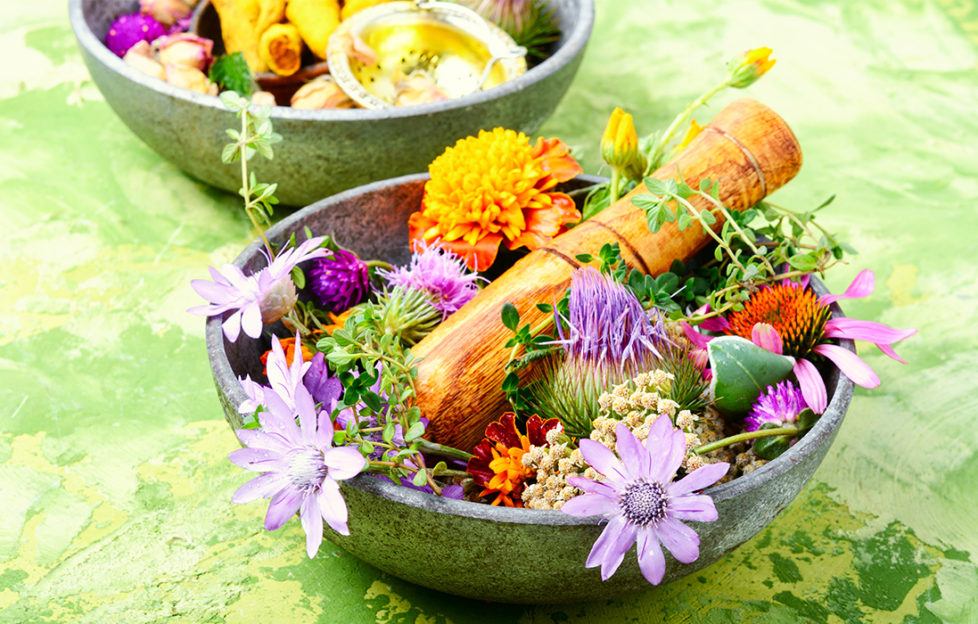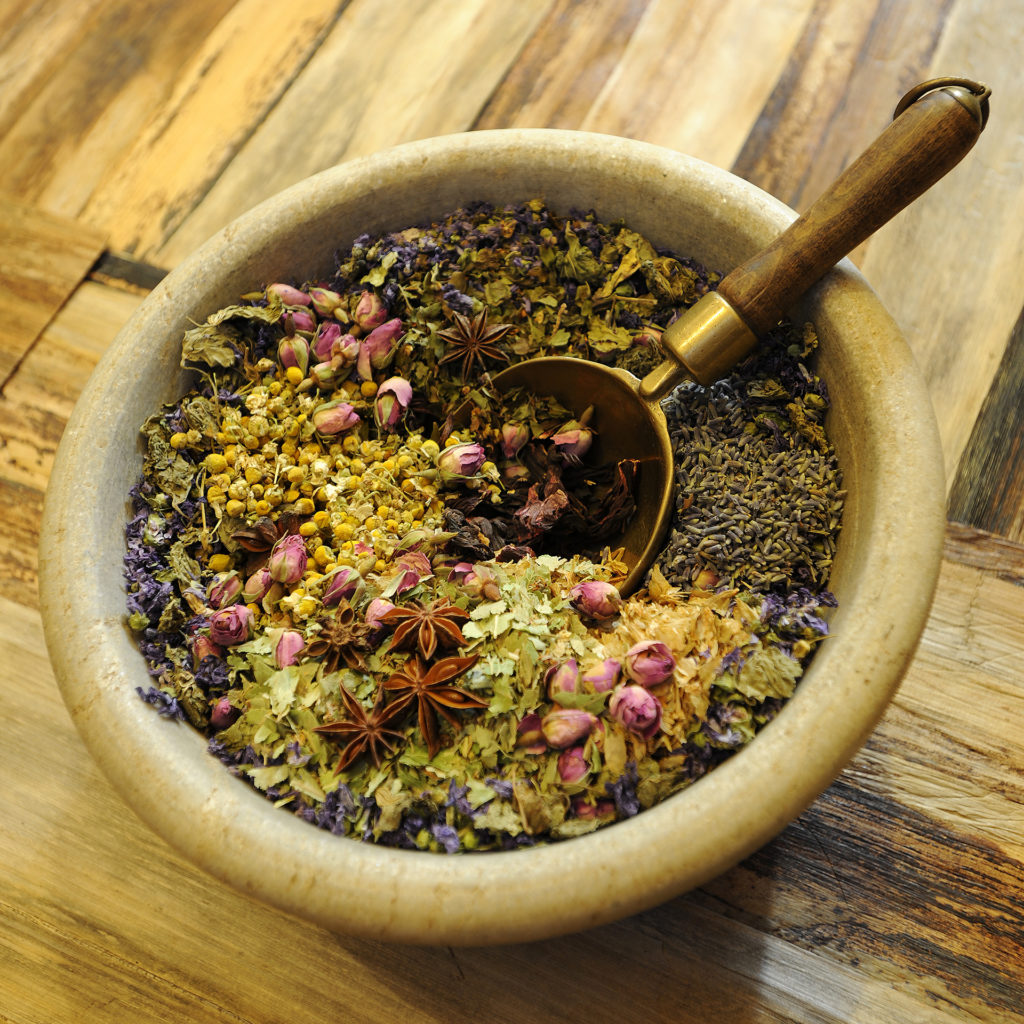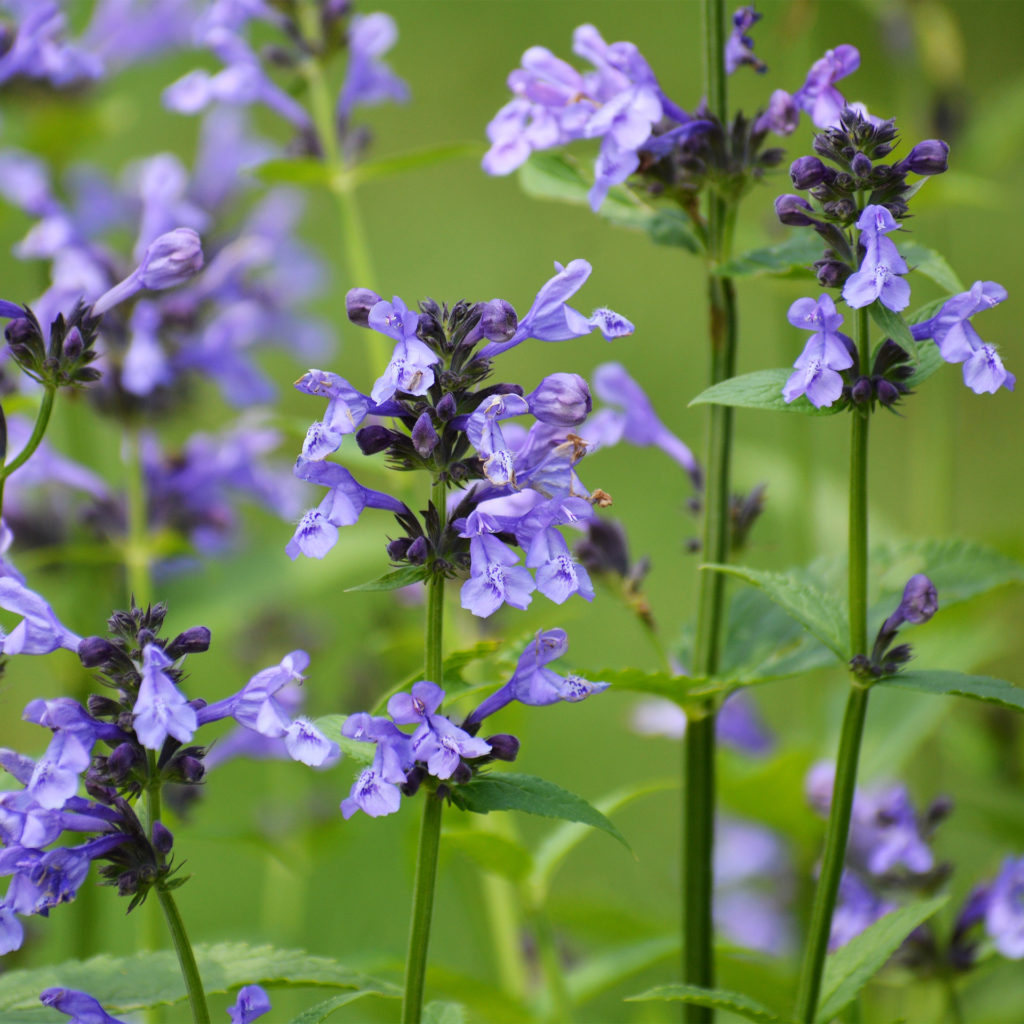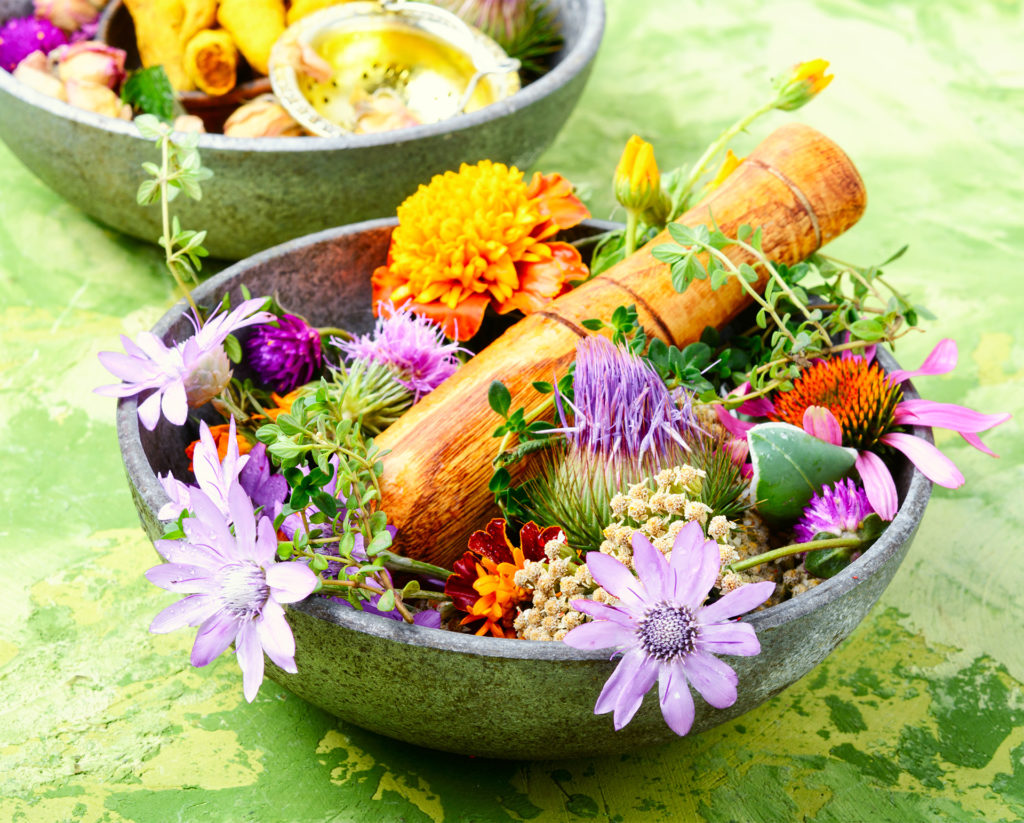Herbal Help For Us All In Anxious Times

Wendy Kelly MNIMH is a consultant medical herbalist at Health Food and More, just one of the herbal clinics supporting people nationwide through the lockdown by offering remote consultations online and sending prescriptions and vitamins by post. She shares some of her favourite herbal remedies to support our mental health.
Unprecedented, lockdown, extraordinary, panic buying, crisis, emergency, pandemic… or just plain WEIRD. These are just some of the words and phrases being used daily in the media to describe our new global reality.
We are all experiencing an unusual – and somewhat frightening – situation just now. Our caveman nervous systems are kicking us into our ‘fight or flight’ response.
We are ready to stand up and fight that sabre-toothed tiger or run for our lives (or run for that last pack of loo roll on the supermarket shelf!)
It’s ironic, of course. While the primitive part of our brains instigates a flood of adrenaline and other stress hormones into our bodies to fight imminent danger, we are being asked to ‘stay home’ and ‘stay calm’.
The result? Anxiety, fear, disturbed sleep and the jitters!
A completely normal response
Add to this the potential for arguments and pressurised relationships between bored, frustrated family members cooped up together with nowhere to escape to. The result? Our mental health can be left struggling.
Of course, feeling upset and scared is a completely normal response in such unusual times. But, with no end date for this crisis, we need to find ways of calming things down and finding a little peace.
There’s lots of good advice out there already. Breathing techniques, getting your daily exercise, taking up a hobby such as crocheting or sewing to calm your mind… But how can the herbal world help us in these tumultuous times?
A whole herbal toolkit
Medical herbalists are very experienced in treating anxiety. We have a whole herbal toolkit at our disposal, so let me share with you some of my personal favourites.
Chamomile tea – Soothing to the nervous system and stomach, this calming tea should not be reserved for bedtime. It’s a favourite for anxiety in children too. Enjoy it any time of the day with a peppermint teabag thrown in, a grate of fresh ginger, or a teaspoon of honey.
Green tea – Due to the presence of an amino acid l-theanine, green tea has a GABA (gamma-aminobutyric acid)-promoting effect and is thought to boost alpha wave production in the brain. This promotes focus and relaxation without a sedative effect. Useful for those working at home needing to concentrate! It’s rich in antioxidants which boost the immune system. Green tea is a good, healthy, all-rounder.
Skullcap – This soothing herb ends up in many of my prescriptions. It’s a beautifully relaxing remedy for both the mind and your muscles. If you tend to hold tension in your shoulders or neck, or suffer from tension headaches, this could be the herb for you.
Oats – Herbalists use tinctures and tea of oat straw for anxiety and the chronically stressed. It’s rich in many phytonutrients that nourish and restore the nervous system. The seed is also useful, so lots of porridge and oatcakes can help feed a frazzled nervous system.
Lemon balm – This beautifully citrus scented member of the mint family may already be growing in your garden. This herb boosts GABA levels in the brain, calming anxiety and raising mood. It’s great for anxiety that goes for your stomach. The fresh leaves of lemon balm make a soothing tea, or it is available as a capsule or tincture.
Adaptogens can boost our resilience
Rhodiola – This herb is known as an adaptogen, which means it can help to boost our resilience to stress. It’s used by herbalists to increase focus and energy, whilst reducing anxiety.
Ashwaganda – Another adaptogenic herb, its sleep-promoting properties are hinted at in its latin name, Withania somnifera. A very supportive, soothing herb in time of emotional and physical adversity, it can be used during the day for energy or before bed for restful sleep.
Of course, lots of other herbs can help with anxiety and dealing with stress. Medical herbalists are well trained and equipped to choose the safest blend for your individual needs.
If you are on medication, have any medical conditions or are unsure which herbs would be most appropriate, consult your local, independent health store. Many are either staying open or offering online services.
If your local health store doesn’t have a residential herbalist, you can find one near you.
 Read more medical herbal advice in our latest My Weekly Special, out today! If you can’t get out to the shops, you can subscribe here and have it delivered straight to your door.
Read more medical herbal advice in our latest My Weekly Special, out today! If you can’t get out to the shops, you can subscribe here and have it delivered straight to your door.








